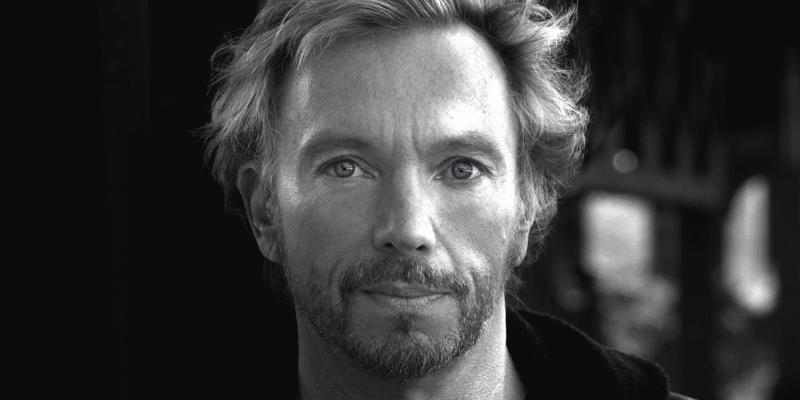

On an overcast morning last week, I pulled into the Sea Biscuit Cafe on Isle of Palms. Opening the door, I was greeted by a lively breakfast chorus. Spoons clanged against coffee cups, forks and knives drummed percussion to lively, caffeine-driven conversations. I picked a table in the corner near the window, pulled out my talking points, set the recorder on the table, and ordered coffee.
Minutes later he was there.
John Brannen; ageless, agile, and confident.
For the next hour and a half, the hubbub of the cafe subsided into the background. I thought later that the interview went something like an album, a moment of silence between tracks. Talking points lay idle as I sat back and absorbed the conversation.
Singer-songwriter John Brannen, whose Somebody was recorded by the Eagles for their most recent album, charges the air around him. Described as a Heartland Rocker, a true Rolling Stone, he's always been there, and gathers no moss or wrinkles for that matter. I tell him that he has held up well considering the span and era of his career.
"I shouldn't have," he says with a reminiscing smile. His career and endeavors have taken him across the continent and the U.S., but like the ebb and flow of the Atlantic, he is pulled back to his southern roots. "I don't like to stay in big cities too long. The icker begins to grow on you." he says, while rubbing his arms. He talks about meeting with legendary music icon Danny Goldberg. Danny started his career as a journalist for Rolling Stone magazine. A few of the names Danny has managed over the years; Led Zeppelin, Nirvana, Steve Earle, Allman Brothers, Alannah Myles.
"Danny Goldberg gets it," John says. You get the sense that John is more honored and humbled than proud to say that he signed an exclusive writer/publisher deal with Goldberg in October this past year.
When I ask about accomplishments, it's clear that his eight-year-old is his crowning life achievement. Beyond that, he has six albums under his belt. He was chosen to perfrom on the 1993 Triple Play Tour with Toby Keith and Shania Twain. Film The Black Dove, written by director Michael Caporale and recently accepted in The Houston Film Festival with award status, features John's music from three different albums (John's original, rare pre-1986 black Gibson Dove guitar was the catalyst for Caporale writing the screenplay and can be seen in several of his videos).
I ask about his creative influences. The name-dropping wasn't meant to impress, but did nonetheless. John tells of conversations, inspirations, phone calls, sessions with some of the greatest musicians ever. In near reverence, John tells me, "I considered Waylon Jennings a huge inspiration, from a genre that transcends time. He actually played bass with Buddy Holly, a first-generation rocker. Playing with him was the only time in my adult life that I could say I was nervous. My hands trembled."
"Joe Walsh? One of the most caring individuals you will ever meet. Sick, wicked, stupid talented. My tape lands on his desk, the next thing I know, I am being called by his attorneys and told to be at such and such airport, where I am picked up by his limousine driver holding a sign with my name on it to meet him in Memphis." John tributes Walsh as a wonderful mentor who spring-boarded his career.
We talk about the flood of ~Resurgence~ albums by lifer musicians. In order to resurge, you'd have to go under. That can't be said about John Brannen. Perpetually revolving into this next decade, after belting the last two. The south anticipates its prodigy's new endeavors and they are exciting, indeed. John is writing and directing the film Midnight Rain, set to shoot in April here in South Carolina. He is also recording a new album in the spring. The long-awaited DVD "One Night In Charleston" recorded last year at The Footlight Players" should be available by Christmas. It is John's first LIVE recorded film and performance.
We readily romanticize everything in the south, even our specters. Every artist has a few that keep their guitar strings bleeding.
"Absolutely" he agrees. "I set out to identify emotions and, if all goes well, something emerges that hasn't been apparent. It's something like throwing a sheet over a ghost and finally the ghost has a form, something we would not have seen otherwise."
Who says something like that? Smoky room in the 1970's after reading Poe, I might have. I can't remember.